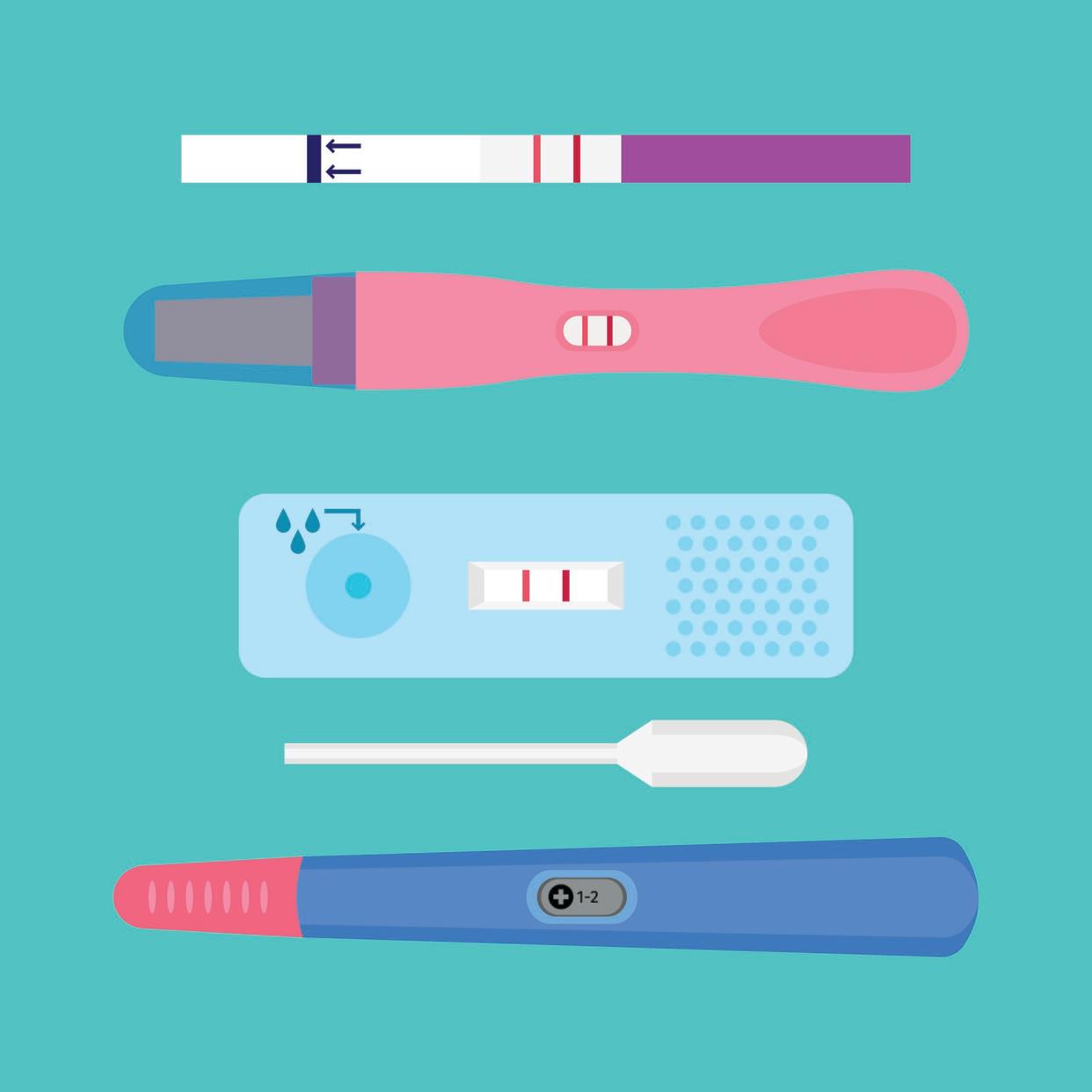Ovulation Test Pros and Cons: Understanding OPKs

MSSA/Shutterstock
In a perfect world, ovulation predictor kits, or OPKs, would infallibly detect ovulation, and having sex while you're ovulating would inevitably lead to pregnancy. The reality is much more complicated though.
Learn how these simple tests work, then be sure to consider the pros and cons of OPKs before trusting your fertility exclusively to this method. Here's what you need to know before you head to the drugstore to stock up.
RELATED: Finding Your Most Fertile Days: A 3-Step Guide
How do ovulation tests work?
OPKs can detect a surge in the production of luteinizing hormone (LH), which occurs roughly 36 hours before ovulation. By timing intercourse shortly after the LH surge, you can increase your odds of bringing sperm and egg together at the time when conception is most likely to occur.
But take note: OPKs do not test for ovulation. Ovulation predictor kits measure the LH surge that precedes ovulation, but can't confirm whether you have actually ovulated. Occasionally, an egg fails to emerge from its follicle after the LH surge has occurred, a condition known as LUFS (luteinized unruptured follicle syndrome).
OPKs also don't indicate whether cervical mucus is conducive to fertilization. The mucus produced by the cervix in midcyle, which you experience as vaginal discharge, must have a certain consistency (clear and elastic, like egg whites) in order to provide a fertile environment for sperm to swim through. OPKs do not monitor cervical mucus.
RELATED: Cervical Mucus Stages: What It Looks Like When You're Fertile
How accurate are ovulation tests?
OPKs are more precise than other methods of monitoring ovulation. Used correctly, the major-brand OPKs are more than 97 percent effective in detecting an LH surge, which is used as a marker for ovulation.
Although in most cases, OPKs provide an accurate forecast of your LH surge and subsequent ovulation, they are most effective when used together with other monitoring methods. Along with an OPK, try examining your cervical mucus and charting your basal body temperature – the term refers to your lowest, or baseline, temperature, and is usually taken first thing in the morning. These methods combined can greatly increase your chances of becoming pregnant.
RELATED: 9 Reasons Why You're Not Getting Pregnant
When should you take an ovulation test?
OPKs should be used in the middle of your cycle, during the time when you would be most likely to ovulate. Note that it helps to have a sense of your typical cycle length, so start keeping track now if you haven't already!
RELATED: Ovulation Signs and Symptoms to Know If You're TTC
The Pros of OPKs:
OPKs are convenient. Since you only need to use OPKs in the middle of your cycle, it's a little less work than other methods of tracking ovulation, such as charting your basal body temperature (BBT), which requires a daily commitment.
OPKs are widely available. You can get them over the counter at drugstores, pharmacies, and even major supermarkets and convenience stores, without a prescription.
OPKs are easy to use. Ovulation kits are similar to home pregnancy tests — you simply urinate on the test stick, activating a chemical that can detect your LH surge. Most OPKs contain between five and nine test sticks.
RELATED: Best Ovulation Tests to Try When You're TTC
The Cons of OPKs:
OPKs don't work when certain fertility drugs are present in the system. OPKs do not function reliably when injectable fertility drugs such as Pergonal or the hormone hCG (e.g., Profasi) are present in the system.
OPKs do not work consistently on women over 40. Some women in their 40s, especially those approaching menopause, have increased levels of LH in their systems at all times, rendering the tests invalid.
OPKs don't come cheap. These kits cost between $15 and $50 depending on the brand and number of tests included. Each is good for a single cycle.
RELATED: The 10 Best Period and Ovulation Tracker Apps
Trying to Conceive: Your Ovulation Calendar
Find out how to know what time of month you are most fertile with Dr. Obosa Osawe.

